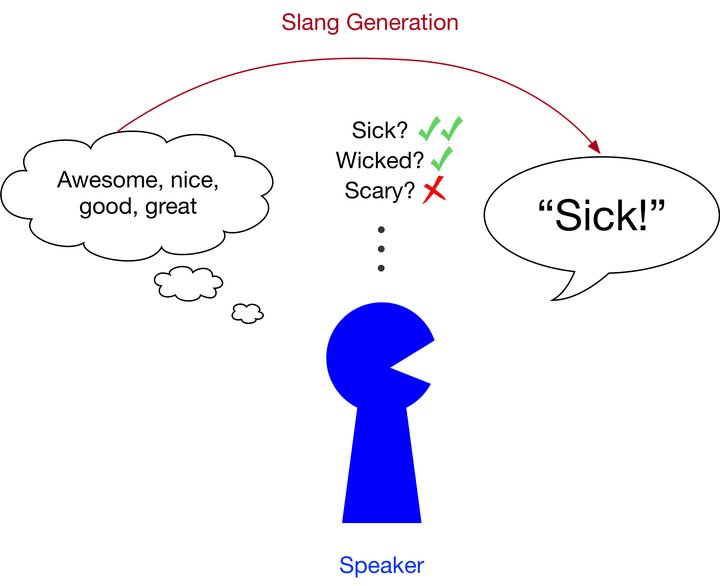
Abstract
Slang is a common device for expressivity in natural language. While slang has been studied extensively as a social phenomenon, its cognitive bases are not well understood. We formulate the processes of slang generation as a categorization problem. We explore a set of cognitive models of categorization that recommend slang words based on intended referents of the speaker beyond the existing senses of words. We test these models against a large repertoire of slang sense definitions from the Online Slang Dictionary and show that the categorization models predict slang word choices substantially better than chance, without explicit consideration of external social factors. We also show that words similar in existing senses tend to extend to similar novel slang senses, reflecting a process of parallel semantic change. Our work helps to ground theories of slang in cognitive models of categorization and provides the potential for machine processing of informal natural language.